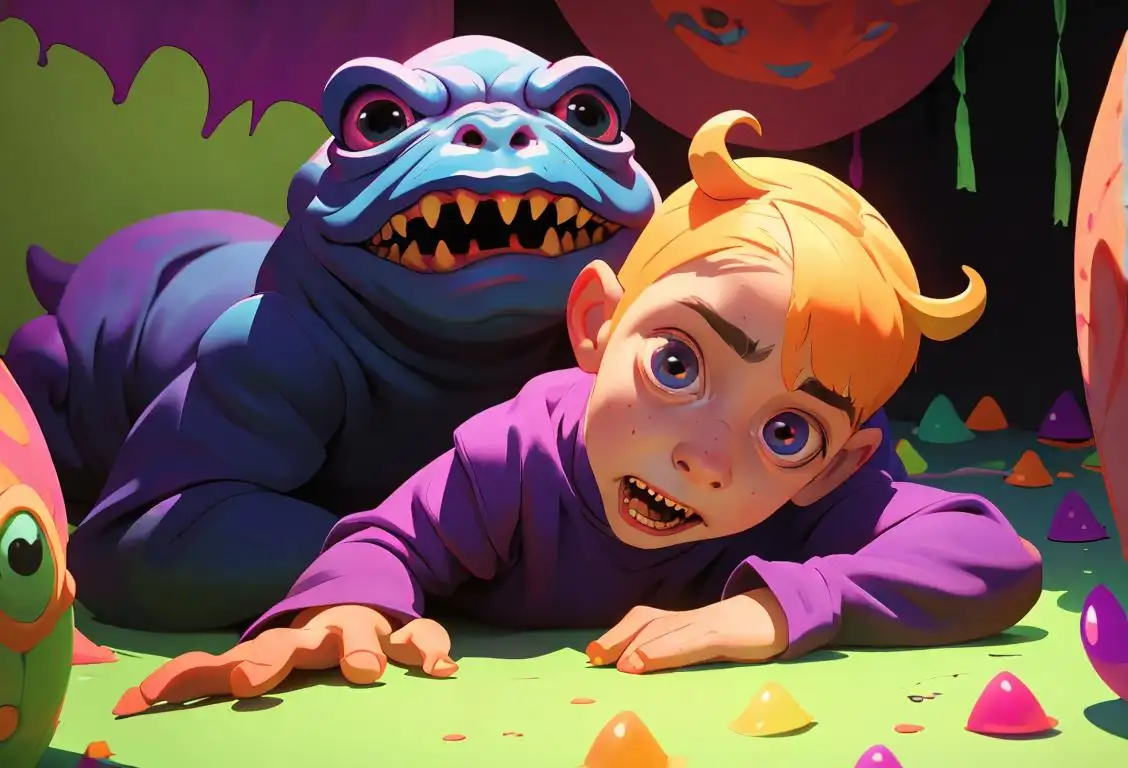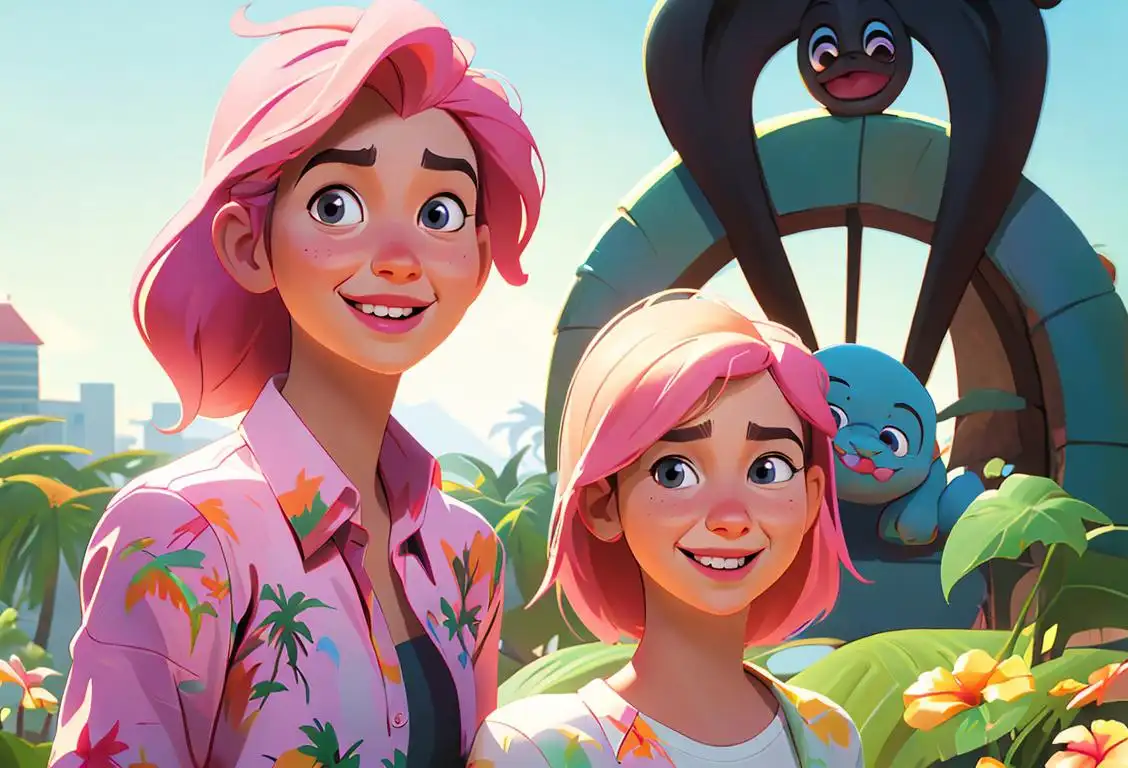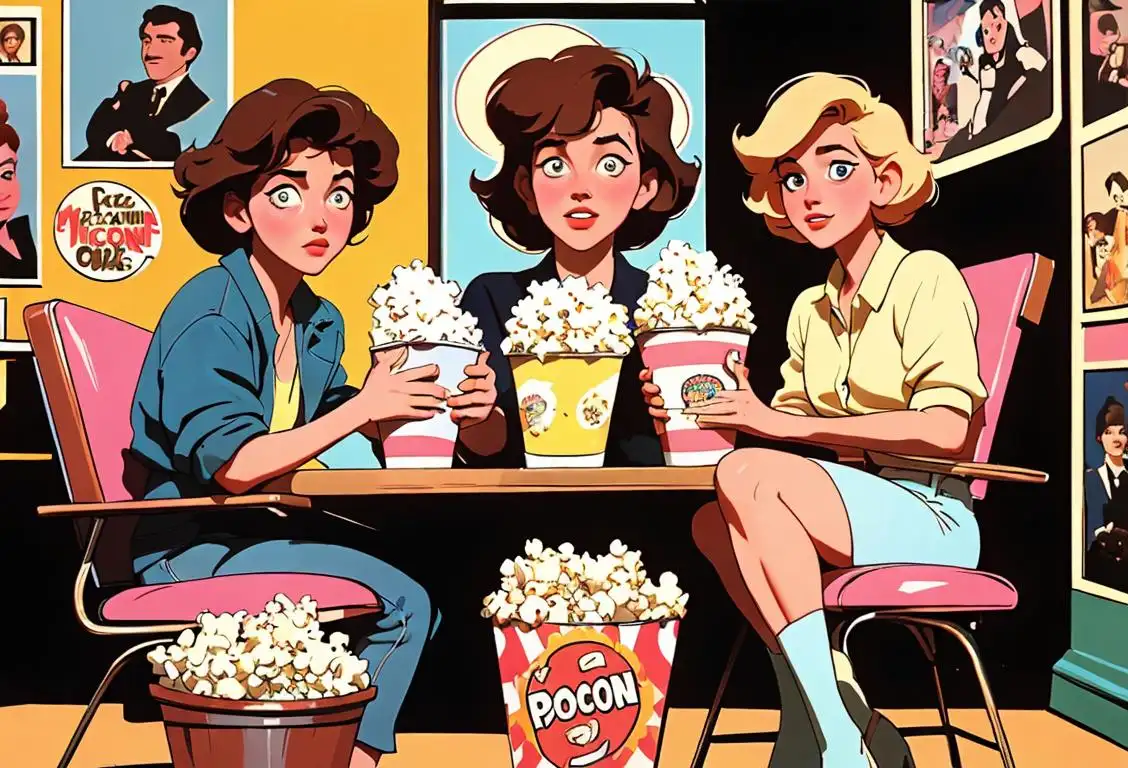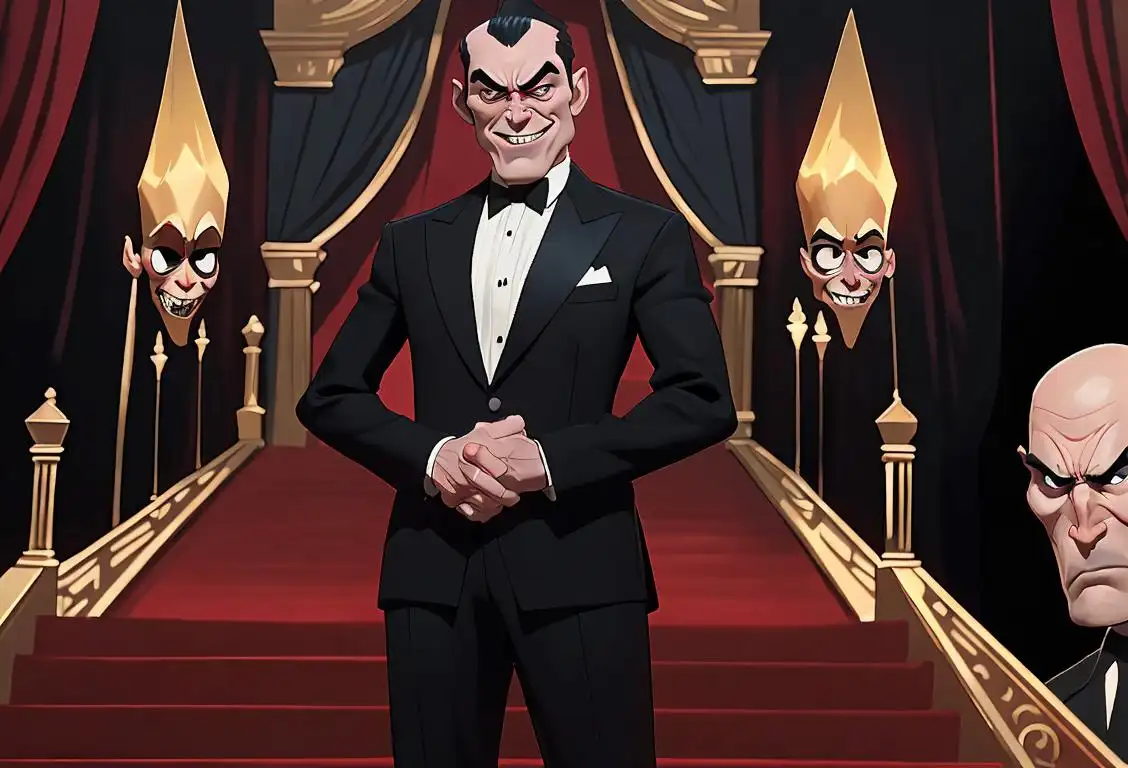National Monster Day

Boo! Did something just touch your shoulder? Are the hairs standing up on the back of your neck? Don't fear, it's just National Monster Day! This beloved yet spooktacular day gives us the perfect excuse to embrace the ghoulish, the scary, and the downright creepy. Buckle up friends, it's about to get monstrously fun!
When is Monster Day?
It's national monster day on the 14th August.
A Monstrously Good Time
You may be wondering what the devil is National Monster Day? Well, keep your hair on...this day is all about celebrating the monsters that have left claw prints in our culture. Whether it's from books, movies, video games or your kids' bedtime stories, monsters have a place in our hearts, even if they sometimes make them skip a beat!
Stalking Through History
Our records show this day had only a sparkle in the mad scientist's eye until suddenly there was a pulse. The first mention of National Monster Day roared onto the internet scene on 14th August 2015, and it's been growing like a werewolf under the full moon ever since. With over 9931 mentions online, it’s clear that this monstrous love is universal.
Monstrously Fun
How to celebrate National Monster Day? Well, why not have a classic horror movie marathon with popcorn so good it'll scare you? Or maybe embrace your inner monster artist by creating monster-themed crafts. If you're brave enough, storytelling under the bed covers about the friendly monster under your bed could also be a giggle.
Monsters Have Feelings, Too!
This may sound odd, but National Monster Day is not just about being scared. It’s a day for understanding that monsters have feelings too, even if those feelings are primarily hungry. Our sense of childhood wonder of what lurks under the bed or in the shadows of the closet should be a fond memory. Behind every scary snarl, there just might be a lonely monster who needs a friend.
History behind the term 'Monster'
14th century
Monstrum and Monere
The term 'monster' finds its roots in the Latin words 'monstrum' and 'monere.' The term 'monstrum' referred to an omen, a supernatural occurrence, or something that was strange or extraordinary. 'Monere' meant to warn or advise. At this point in history, the term 'monster' did not necessarily carry a negative connotation but rather denoted something out of the ordinary or remarkable.
16th century
Monstrous Creatures
During the 16th century, the term 'monster' started to signify extraordinary and often terrifying creatures. It became associated with mythical beasts, legendary creatures, and human aberrations. These monstrous beings were often depicted in art, literature, and mythology. Examples of famous monsters in this era include Medusa, the Minotaur, and the kraken.
18th century
Monsters as Moral Lessons
In the 18th century, monsters began to be used symbolically as moral lessons. They represented the consequences of human actions and often reflected societal fears. Monsters in literature and folklore served as cautionary tales, warning against certain behaviors or beliefs. Mary Shelley's 'Frankenstein' (1818) is a prominent example of a monster embodying social and moral concerns of the time.
20th century
Monsters in Popular Culture
The 20th century saw the rise of monsters in popular culture. With advancements in film, the depiction of monsters became more realistic and immersive. Classics like 'Dracula' (1931), 'Godzilla' (1954), and 'King Kong' (1933) brought monsters to the silver screen, captivating audiences worldwide. These iconic monsters became cultural phenomena, inspiring countless adaptations, sequels, and reimaginations.
21st century
Monsters as Metaphors
In the 21st century, the concept of monsters has evolved to encompass metaphorical meaning. Monsters now represent various aspects of human nature, such as internal struggles, societal fears, or hidden desires. They can be found in literature, movies, video games, and even everyday language. The fascinating aspect of monsters is their ability to adapt and continue to resonate with audiences in new and thought-provoking ways.
Did you know?
Did you know that the highest grossing monster movie is 'Jurassic Park' which earned over a staggering $912 million worldwide? Yep, T-Rex has truly earned his King of the Monsters title.Tagged
awareness fun movies bedtime stories craftsFirst identified
14th August 2015Most mentioned on
14th August 2015Total mentions
9931Other days
Monster Day
Ellie Day
Movie Day
Villain Day
Thug Day
Memorial Day
Heroes Day
Former Prisoner Of War Recognition Day
Liberation Day
Handloom Day







